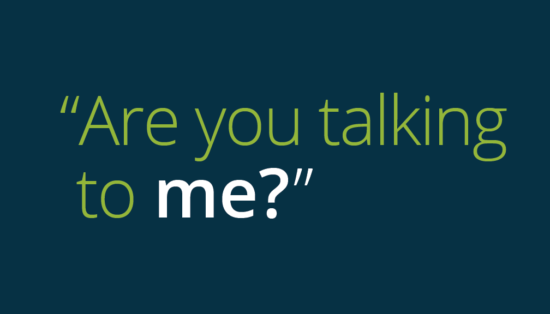Personalized marketing (or one-to-one marketing) is the implementation of a strategy where companies deliver individualized content to recipients through data collection, analysis, and the use of automation technology.
The goal of personalized marketing is to truly engage customers or prospective customers by communicating with each as an individual.
Personalized marketing is one of the biggest trends in digital marketing, especially with the interest in artificial intelligence.
Here are 30 fascinating facts about personalized marketing.
- 90% of consumers find personalized marketing content very or somewhat appealing, with just 4% saying that they find it not very or not at all appealing.
- 78% of consumers are more likely to be a repeat customer if a brand provides targeted, personalized offers.
- 78% of consumers say that personally relevant content increases their purchase intent for a brand’s products and services.
- 75% of consumers prefer personalized content.
- 74% of online consumers get frustrated with Web sites when content (e.g., offers, ads, promotions) appears that has nothing to do with their interests.
- 71% of organizations use web analytics software for personalization purposes, with 56% saying that their most used personalization technology is a content management system.
- 71% of consumers believe that grocery and drug companies’ websites and mobile apps are doing very or somewhat well at delivering personalized experiences.
- 68% of companies prioritize personalized content experiences. The most common solutions invested in are: Web Content Management (60%), Email Marketing (53%) and Tag Management (51%).
-
66% of marketers personalize their e-mail content by age, compared to 38% who use consumer age data to personalize social media content.For 66% of marketers, one of the big struggles with personalization is securing internal resources to execute personalized marketing programs.
- 65% of marketers say they use personalization in e-mail marketing, compared to 18% who are using personalization in mobile apps.
- 65% of consumers aged between 18 and 34 cite personalized support as their preferred form of retail personalization, compared to 10% who cite personalized advertising.
- 63% of respondents say increased conversion rates as the main benefit of website and in-app personalization, whereas 32 percent cite increased e-commerce revenues as the main benefit of this tactic.
- 60% of respondents say that location is one of the key criteria they use when targeting for personalization, with 48% saying that they look at previous visits behavior.
- 60% of marketers struggle to personalize content in real time, yet 77% believe real-time personalization is crucial.
-
56% of marketers less than 10 percent of their marketing budget for personalized digital communications, whereas 6% of marketers report using 31% to 40% of their budget on personalization.
- 55% of consumers feel that Amazon is the best at delivering personalized experiences online, whereas 38% of feel Facebook is best at online personalization.
- 48% of consumers say companies using their purchase history for shopping recommendations sent to mobile phones behavior is acceptable to them as long as they could opt out at any time.
- 45% of consumers won’t spend time with branded content if it’s not relevant to their interests.
- 39% of marketers have seen increases of at least 20% on their most important metric using website personalization technology.
- Only 39% of retailers send personalized product recommendations via email.
-
32% of consumers expect to get a relevant discount within an hour of interacting with a brand in a way that allows that brand to identify them, with 25% of expect to receive a personalized newsletter within one hour.
- 23% of marketers find that data quality was the largest obstacle to personalization.
- 19% average uplift in sales for brands using personalized content.
- 18.8% email open rate for emails with a personalized message as compared to 13.1% without any personalization.
- Only 11% of marketers are extremely satisfied with their levels of personalization in web applications.
- 10% improvement in click through rates and conversions for email with personalized message.
- Digital content is expected to grow 50 times between 2010 and 2020.
- Personalized emails deliver six times higher transaction rates, but 70% of brands fail to use them.
- The biggest challenges with personalization are gaining insight quickly enough (40%), having enough data (39%), and inaccurate data (38%).
Do these personalized marketing fact have an influence on you? Does your company need help executing personalized marketing?

